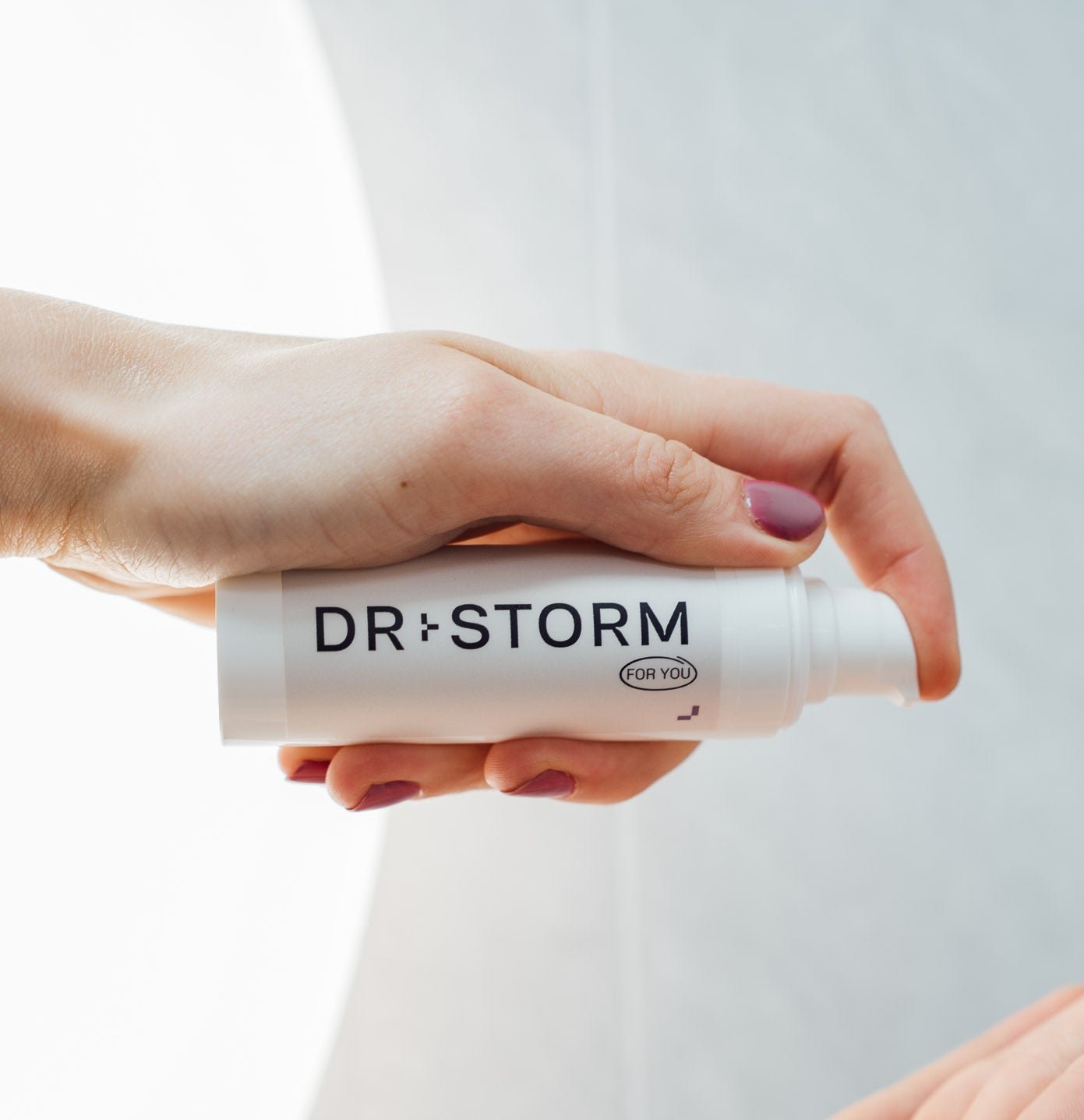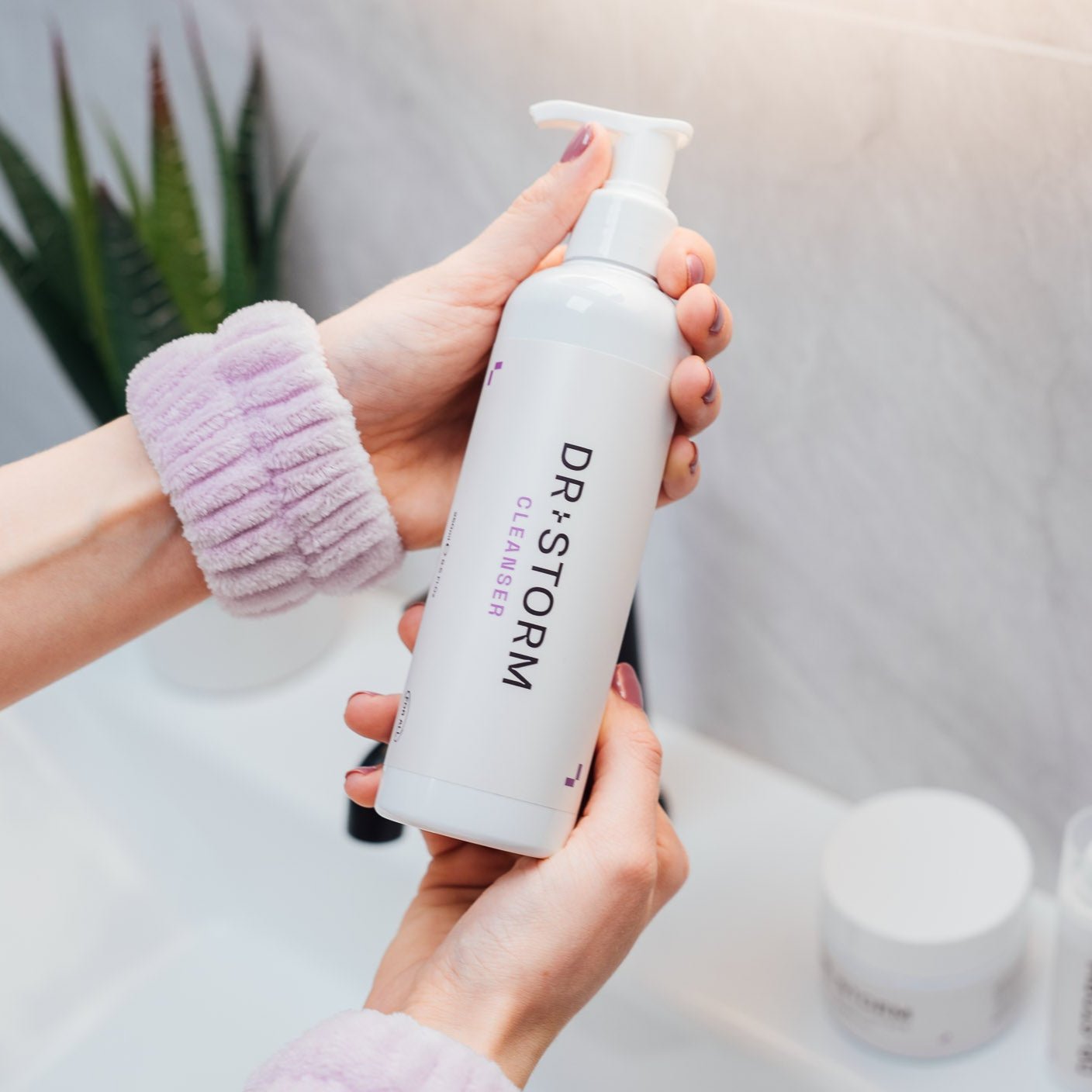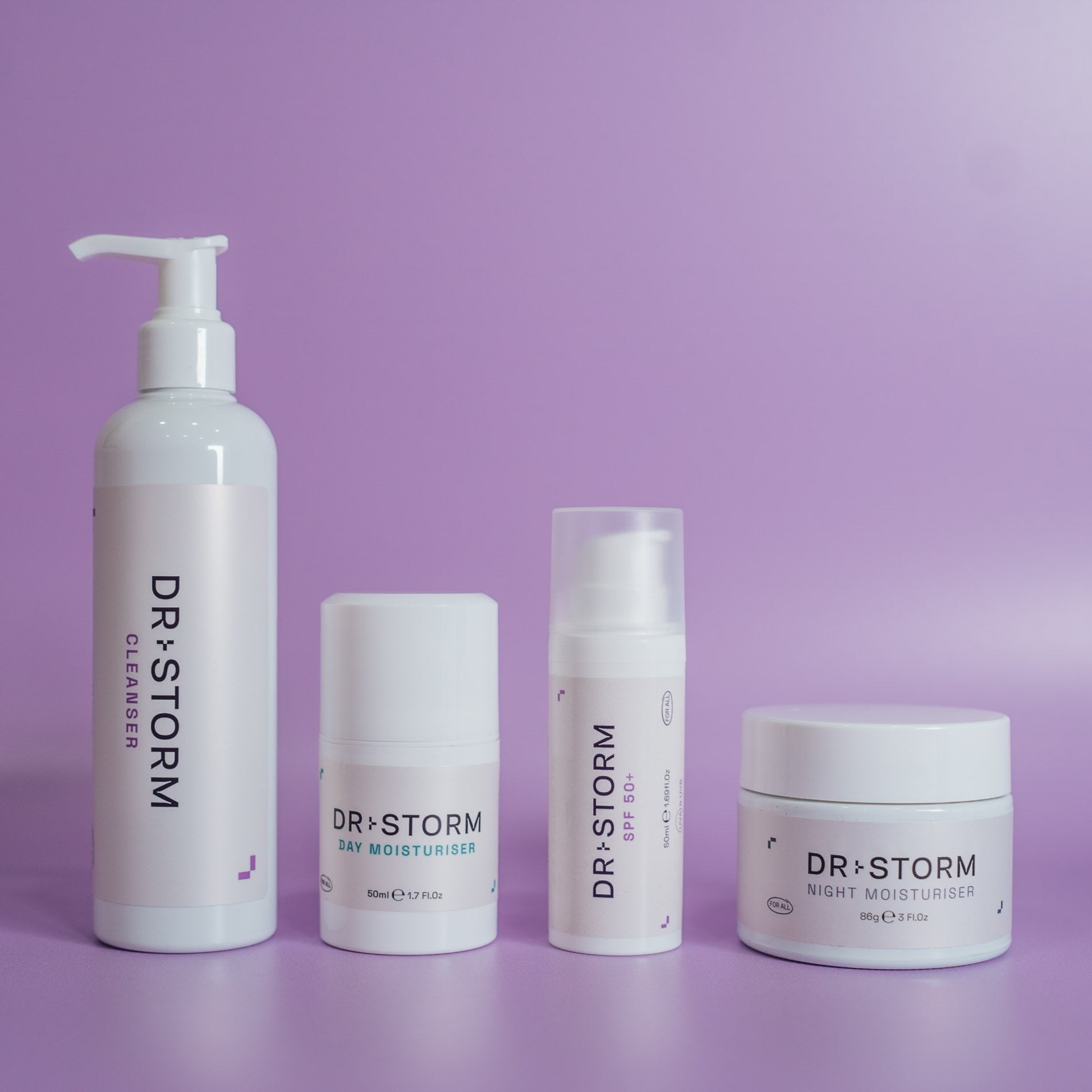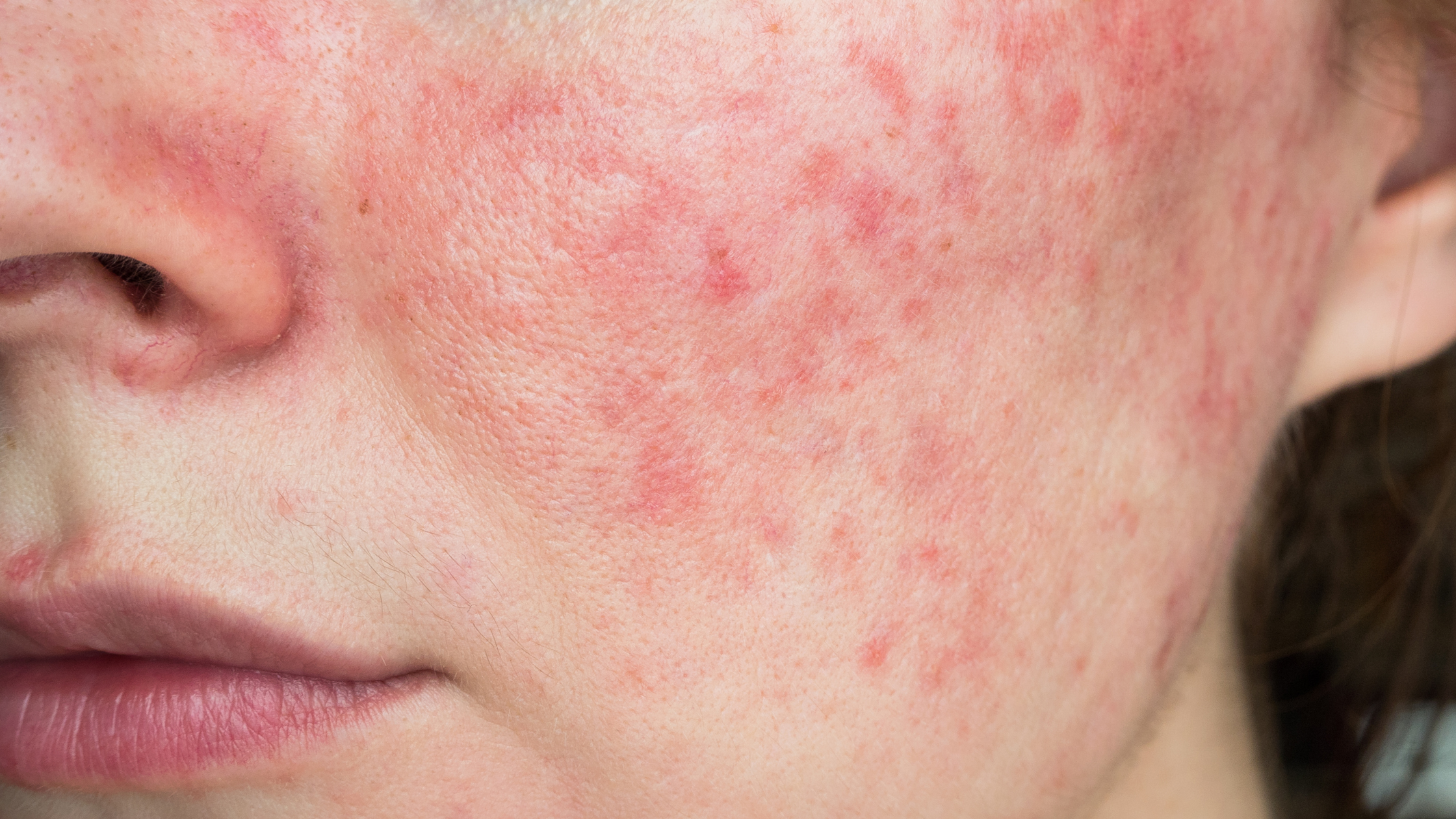Having clear and healthy skin is important, especially for teenagers! We all want that healthy complexion! This step-by-step guide will help you establish a skincare routine that's perfect for teens like you! Now, let's dive right in and get started on the path to clear and glowing skin. With this guide, you'll learn all the tips and tricks to achieve that enviable complexion while having fun along the way. So get ready to rock your skincare routine like a pro!
Step 1: Know Your Skin and What You Like on Your Skin
Before starting a skincare routine, it might help you to understand your skin type. Knowing your skin type will help you choose the right products and treatments that suit your needs and make your skin feel good. People tend to describe four main types of skin:
- Dry skin: If your skin often feels tight, rough, or flaky, you may have dry skin. Dry skin lacks hydration and may be more prone to sensitivity. It's important to use moisturisers that provide intense hydration to nourish and replenish your skin.
- Oily skin: Oily skin tends to produce excess sebum, leaving your face looking shiny and feeling greasy. You may also experience enlarged pores and be more prone to acne breakouts. Look for lightweight, oil-free products that may help mattify your skin.
- Combination skin: Combination skin is the most common skin type, where some areas of your face are oily (usually the T-zone, which includes the forehead, nose, and chin) while other areas may be normal or dry. It's important to strike a balance by using products that feel nice on both oily and dry areas.
- Sensitive skin: If your skin is easily irritated, prone to redness, and reacts to certain products or environmental factors, you likely have sensitive skin. It's crucial to choose gentle, fragrance-free products with soothing ingredients to minimise potential irritations.
Understanding your own skin and what you like on it will guide you in selecting the right cleansers moisturisers, and other skincare products that work harmoniously with your skin's needs. Remember, everyone's skin is unique, and it may take some trial and error to find the perfect routine for you. Embrace the journey to clear and healthy skin with enthusiasm and enjoy the rewards of a radiant complexion!
Step 2: Keep it simple!
Unless you have a specific skin concern like acne, then keep your skincare routine simple! The best thing you can do as a teen is use a SPF and keep out the sun. Performing laborious 20-step skincare routines wastes your time and your money, so please don't bother! Trust me, you really don't need toners, eye creams or face masks! If you are suffering from a skin condition, see your doctor for some medical treatment, and stay away from scrubs and spot treatments!
Step 3: Cleansing
Cleansing is an essential step in your skincare routine. It's important to always select a gentle cleanser regardless of your skin type. Whether you have dry, oily, combination, or sensitive skin, a gentle, non-foaming cream/gel/oil-based cleanser will protect your skin barrier.
A gentle cleanser that will minimise loss of natural lipids from the skin while removing make-up, SPF or impurities. Look for a cleanser that is labelled “for dry skin” even if you are oily or acne-prone to help nourish and replenish your skin's moisture barrier…I promise it won't break you out!
If you have oily skin, I advise people to avoid keywords like "oil-free" or "purifying" on the label. These cleansers will not control excess oil or prevent breakouts and will only potentially damage your skin barrier. Ingredients like salicylic acid or tea tree oil may temporarily reduce the appearance of oil but won't actually reduce the production of oil.
Likewise, combination skin can use a gentle cleanser that targets both oily and dry areas of your face. The T-zone (forehead, nose, and chin) is the area where oil tends to accumulate on the face as there are more sebaceous glands located. Consider using a gel cleanser that effectively removes impurities without stripping away moisture.
For those with sensitive skin, it is particularly important to choose a gentle and fragrance-free cleanser that calms and soothes the skin. Look for labels that indicate "gentle" or "hypoallergenic."
I advise teens not to cleanse in the morning to minimise irritation to the skin…Think about it: How dirty does your skin get overnight in bed? As for double cleansing, I advise you NOT to double cleanse as it can actually damage the skin barrier and strip the skin of natural lipids. I believe double cleansing is a concept made up of big skincare companies who want to sell more products, and it is not necessary. One pump of the Dr Storm cleanser with a bit of water should be enough to remove all make-up and impurities on the skin. Your skin feeling “clean” or “tight” is not a good thing, as it probably means you've overdone it on the cleansing front!
Remember, cleansing your face should be a positive and enjoyable experience. Take a moment each day to pamper yourself and care for your skin. Gently massage the cleanser onto your face using circular motions, paying attention to areas where dirt and makeup tend to accumulate. Rinse thoroughly with lukewarm water, never hot water, and pat your skin dry with a clean towel.
By selecting the right cleanser and using proper techniques, you'll be on your way to achieving clear and healthy skin. Embrace this step in your skincare routine with enthusiasm and enjoy the benefits of a fresh and radiant complexion.
Step 3: Moisturising
Moisturising is a crucial step in any skincare routine, regardless of your skin type, and it plays a significant role in keeping your skin hydrated, supple, and protected. The true purpose of a moisturiser is to trap and retain water within the skin. By creating a barrier, a moisturiser prevents moisture loss and helps keep the skin hydrated. The Dr Storm ointment-based nighttime moisturiser was formulated to lock in water in the skin to promote a healthier and more nourished complexion. It's important to find a moisturiser that you like applying and sits nicely under your make-up if that is important to you.
For those with dry skin, a rich and nourishing moisturiser is key. Opt for ointment-based moisturisers to maximise hydration and help replenish your skin's moisture barrier. This will leave your skin feeling soft, smooth, and comfortable.
If you have oily skin, you may prefer the feel of a lightweight, oil-free moisturiser that won't add extra shine or feel heavy on your skin. Very few moisturisers will “clog” your pores. The term “non-comedogenic” is a marketing term…basically all skincare products on the market are “non-comedogenic”. A gel or water-based moisturiser can work well for this skin type.
Those with combination skin may prefer a “balanced” approach to moisturising. If you feel like you have this skin type, you could use 2 different moisturisers for different areas of your face if that's what feels good to you.
People with sensitive skin should choose gentle and fragrance-free moisturisers that won't cause irritation or redness. Look for products with minimal ingredients, as this can help calm and nourish your skin without causing any sensitivity.
Finding the right moisturiser may take some trial and error, but don't get discouraged. Embrace the process of discovering the perfect moisturiser that leaves your skin feeling hydrated, plump, and protected. Incorporate this step into your skincare routine with enthusiasm, and enjoy the benefits of a healthy and radiant complexion.
Step 4: Sun Protection
Protecting your skin from the sun's harmful UV rays is absolutely essential for maintaining healthy and radiant skin. When it comes to sun protection, there are a few key factors to keep in mind to ensure your skin stays safe and healthy.
First, let's talk about the two types of UV rays that can damage your skin: UVA and UVB. UVA rays can penetrate deep into the skin and contribute to premature ageing, while UVB rays are responsible for sunburns. Both types of rays can increase your risk of developing skin cancer, so it's crucial to protect yourself from both.
To effectively shield your skin from these harmful rays, it's important to choose a broad-spectrum sunscreen. Broad-spectrum sunscreens protect against both UVA and UVB rays, providing comprehensive protection for your skin. Look for sunscreens with a sun protection factor (SPF) of 50 or higher to ensure adequate coverage.
When applying sunscreen, be generous and apply it to all exposed areas of your skin. Don't forget commonly overlooked areas such as your ears, neck, and the back of your hands. It's also important to reapply sunscreen throughout the day, especially if you're spending extended periods outdoors or engaging in activities that may cause sweating or rubbing.
In addition to sunscreen, consider other sun protection measures such as wearing protective clothing, seeking shade during peak sun hours, and wearing a wide-brimmed hat and sunglasses. These extra precautions can provide additional defence against harmful UV rays and help maintain the health and youthful appearance of your skin.
Protecting your skin from the sun doesn't mean you can't have fun. Embrace the outdoors and enjoy activities with friends and family, all while keeping your skin safe and healthy. So, grab your sunscreen, put on your favourite hat, and have a fantastic time soaking up the sun while keeping your skin protected!
Additional Skincare Steps
While the basic steps mentioned above are essential, there are additional skincare steps you can incorporate into your routine to address specific skin concerns. In some cases, prescription treatments may be recommended by a dermatologist for more targeted and intensive care. For example, retinoids are a type of prescription treatment that can be effective in treating acne, reducing fine lines and wrinkles, and improving overall skin texture. Retinoids work by increasing cell turnover and reducing inflammation, helping to unclog pores and promote clearer skin. Another prescription treatment option for severe acne is isotretinoin, commonly known as Roaccutane. This medication is derived from vitamin A and is highly effective in treating severe and persistent acne that hasn't responded to other treatments. However, it's important to note that prescription treatments should only be used under the guidance and supervision of a healthcare professional, as they may have potential side effects and require regular monitoring. If you have specific skin concerns that are not improving with over-the-counter products, consult with a dermatologist to explore prescription treatment options that may be suitable for you.
Healthy Lifestyle Habits
There is a lot of pressure placed on people with regardless to adopting a “healthy” lifestyle in order to achieve clear and healthy skin…but I feel this is overstressed and can actually do more harm than good! Of course, what you put inside your body and how you take care of yourself overall are important, but I don't believe it has as many implications for skin as people make out! So, let's talk about myths around hydration, sleep, and diet when it comes to your skin!
First and foremost, let's talk about hydration. Despite popular belief, it is a myth that drinking lots of water directly improves your skin and helps acne breakouts.
Contrary to popular belief, increasing water intake alone does not have a significant impact on the water within the skin. Additionally, it’s important to understand that applying water topically to the skin does not increase hydration. Remember, while staying hydrated by drinking water is essential for overall health, relying solely on water intake to improve your skin won’t yield noticeable results. Instead, incorporate a quality moisturiser into your skincare routine to effectively hydrate and nourish your skin.
Next up is sleep. Yes, beauty sleep is a real thing! When you get enough quality sleep, your body has a chance to repair and regenerate, including your skin cells. Lack of sleep can lead to dull and tired-looking skin, as well as an increase in fine lines and wrinkles. So, make it a priority to get those recommended hours of sleep each night. Your skin will thank you for looking refreshed and rejuvenated!
Last but not least, let's talk about diet. A balanced diet rich in fruits, vegetables, whole grains, and proteins provides your body with the essential nutrients it needs to thrive…but don't get obsessed with its impact on your skin! It is true that antioxidant-rich foods like berries and leafy greens can help protect your body from damage caused by free radicals and are good for your general health; however, there is little evidence that it will stop you from getting acne or improve your skin! This said, foods high in omega-3 fatty acids, like salmon or walnuts, may help maintain your skin's natural moisture balance. Too much emphasis is placed upon diet for those suffering from acne, and stressing about yourself can actually make the acne worse! Acne is not the sufferer's fault and not simply down to diet!! So, fill up your plate with colourful and nutritious foods to be healthy, but skin disease is due to many more factors than just what you eat!
What we’ve learned…
Establishing a skincare routine during your teenage years sets the foundation for long-term skin health. By following the step-by-step guide outlined above, you can achieve clear and healthy skin that will benefit you well into adulthood. Starting early with a consistent SIMPLE skincare routine can be beneficial for your skin…and your wallet! Don't fall into the trap of spending money on 20-step routines. Unless you have a specific skin concern, minimise product use and protect yourself from the sun to keep your skin healthy as you age.
Protecting your skin from a young age is the best way to maintain its health and vitality in later life. The sun's harmful UV rays, environmental pollutants, and lifestyle factors can all contribute to skin damage and premature ageing. By incorporating sun protection measures, such as wearing sunscreen daily and seeking shade during peak sun hours, you can prevent the development of wrinkles, dark spots, and other signs of ageing caused by sun exposure.
The habits you establish now will have a lasting impact on the health of your skin. By prioritising simple skincare and protective measures early on, you can enjoy the benefits of clear and healthy skin throughout your life. So, start today and make skincare a lifelong commitment for a glowing and confident future!







